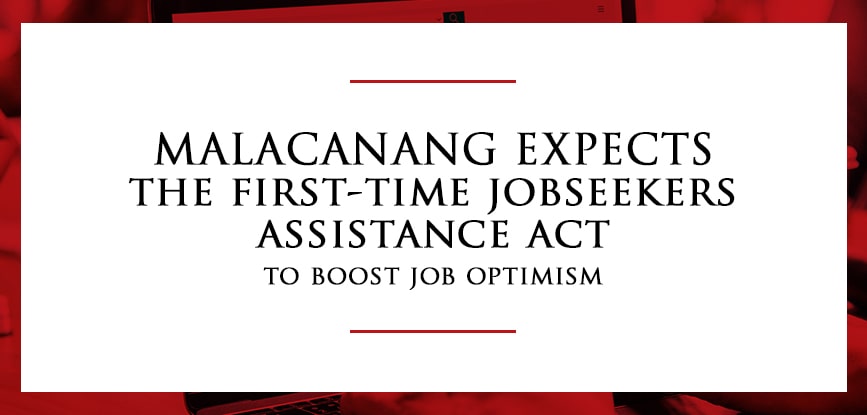
Malacañang Expects the First-Time Jobseekers Assistance Act to Boost Job Optimism
The Malacañang Palace is anticipating an increase in public optimism in the availability of jobs for first-time jobseekers after President Rodrigo Duterte signed a law waiving all government fees on public documents needed for employment.
According to a recent Social Weather Stations (SWS) survey conducted on 1,200 adults aged 18 years old and above nationwide, the net optimism on work availability in the Philippines has climbed to an “excellent” mark from the previous “very high” in March 2019. In total, 55% of the respondents said that they were optimistic for more jobs, 12% were pessimistic, 22% perceived no change, and 11% had no idea.
The results prompted Presidential Spokesperson Salvador Panelo to remark that he “expects this level of optimism to grow further especially with President Duterte’s signing into law of Republic Act 11261, otherwise known as the First-Time Jobseekers Assistance Act, last May 2019.”
Republic Act 11261 or the First-Time Jobseekers Assistance Act, prohibits all government agencies from collecting processing fees from first-time job seekers who are looking to get their requirements to apply for employment. Both fresh graduates and out-of-school youth will benefit from this law when they present their barangay certification as authentication.
“The Palace looks at this landmark legislation as a government’s investment in our young people, where 1.3 million of them are expected to benefit annually, as government-issued documents and clearances are mandated to be waived for first-time job seekers,” Spokesperson Panelo added.
The documents included under this law are the following:
- police clearance certificate;
- National Bureau of Investigation (NBI) clearance;
- barangay clearance;
- medical certificate;
- birth certificate;
- marriage certificate;
- transcript of academic records issued by state colleges and universities;
- tax identification number (TIN);
- unified multi-purpose ID (UMID); and
- other documentary requirements issued by the government that may be required by employers.
The signing of this law shows to the public the government’s efforts toward promoting “full employment and equality of gainful work and opportunities for its citizens” in full effect.
